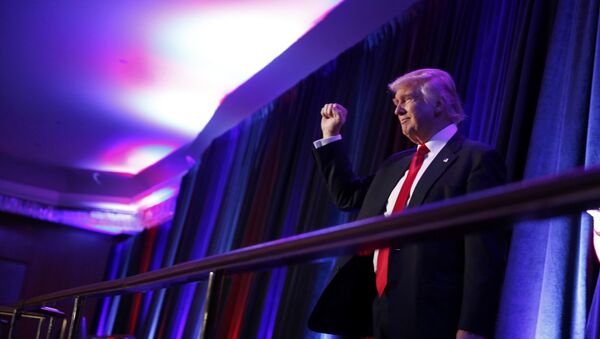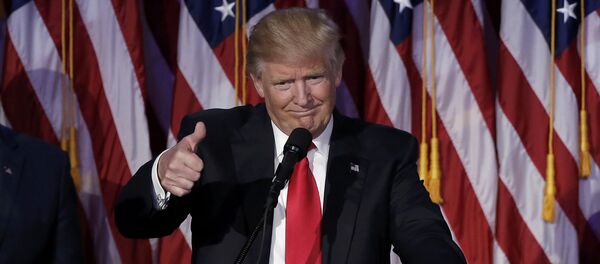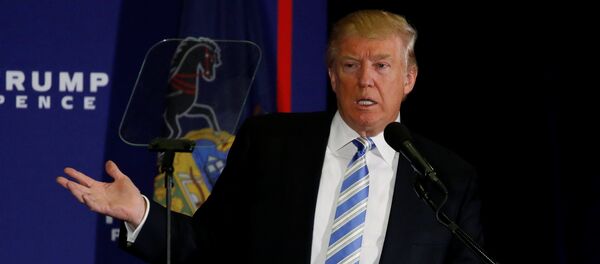MOSCOW (Sputnik) — Obama, who received the Nobel Peace Prize in 2009 over his "extraordinary efforts to strengthen international diplomacy and cooperation between peoples,” seems to have fallen short of the world’s expectations as a peacemaker. His successor will have to deal with the global geopolitical situation fraught with many tensions. Some of the major issues a new US leader will face include the raging war in Syria and the damaged relationship with Russia that deteriorated significantly during Obama's rule.
The next US president will also have to deal with domestic problems, including the often criticized Patient Protection and Affordable Care Act, commonly known as the Obamacare and nationwide socioeconomic problems.
Increased Threat of Int'l Terrorism
The fight against Daesh and other terrorist organizations will be one of the main challenges for the next US president. Unfortunately, the United States has not yet found a systemic approach to this problem, limiting its response to aerial raids carried out against Daesh positions in Iraq and Syria. However, such attacks have caused casualties among hundreds of civilians, according to human rights watchdogs. People who have suffered from western interference in their countries' conflicts tend to become easy prey to terrorist recruiters.
Moreover, in the past year, US residents repeatedly experienced the terror of extremist attacks on their own soil. The San Bernardino terror attack, claimed by Daesh, and the Orlando nightclub shooting, have shown that nobody can feel safe from terrorists even in the United States.
Need to Resolve War in Syria
The new White House boss will also have to address the issue of the Syrian conflict. The situation in Syria, where a civil war has been raging since 2011, has been exacerbated by several factors.
Donald Trump and Hillary Clinton have opposite views on this issue. Trump has said that the United States should stop trying to get rid of Syrian President Bashar Assad and should instead start looking for a diplomatic solution jointly with Russia. At the same time, Clinton has taken a hard line on the issue, supporting Washington's current goals and strategies.
Restoring Relations With Russia
One of the biggest challenges for the next US president will be to revive dialogue with Russia, which has been most recently derailed by the difference of opinion on the conflict in Syria.
So far, there are few points of contact between Moscow and Washington. The Kremlin says it is ready for dialogue with any US president provided it is based on mutual respect. Russian Foreign Minister Sergei Lavrov about a week ago stressed the importance of cooperation and negotiations in the modern world.
“… No one in this world can do anything on its own anymore”, Lavrov said, commenting on Obama’s words about the United States and its partners setting the rules for other countries.
Obama’s successor is likely to face difficulties in restoring the relationship with Russia. Even if the next US president opts to end confrontation with Russia and lift sanctions, he or she will have to overcome the resistance of the US political establishment, which may not be amenable to the idea of a policy overhaul.
“We will most likely see a high degree of inertia in US policy on Russia, which implies continuing a hostile course,” Deputy Foreign Minister Sergei Ryabkov said commenting on whether or not the relationship between Russia and the United States would change drastically under the new president.
Ryabkov added that the relations with Russia would not be the most immediate concern for the new US leader.
Uniting the Divided Nation
The key priority of the next US president on the domestic stage will be the consolidation of the nation. This presidential campaign has shown that the country is sharply divided along political, religious, racial and many other lines.
The next US president will have to deal with many socioeconomic issues, each of them of utmost importance for the US citizens. For example, he or she will have to launch dialogue between the police and ethnic minorities, primarily African Americans. Contradictions between them are rapidly growing to an alarming scale, and the authorities will have to work very hard to normalize the situation.
To boost economic development, the next US president will need to fight unemployment and create new jobs in order to ease the mounting social tensions in some parts of the country.
According to the US Department of Labor statistics, the unemployment rate has been steadily declining nationwide since a sharp surge in 2009-2011, but some states, such as New Mexico, Louisiana, Mississippi, Nevada, West Virginia and 18 others fare worse than the October national average of 4.9 percent.
Obamacare will be one of the biggest points of contention. The 2010 Affordable Care Act has been repeatedly challenged by the Republicans as, while ensuring larger access to medical care for the lower-income citizens, it hiked the costs and narrowed options for many middle-class Americans.





